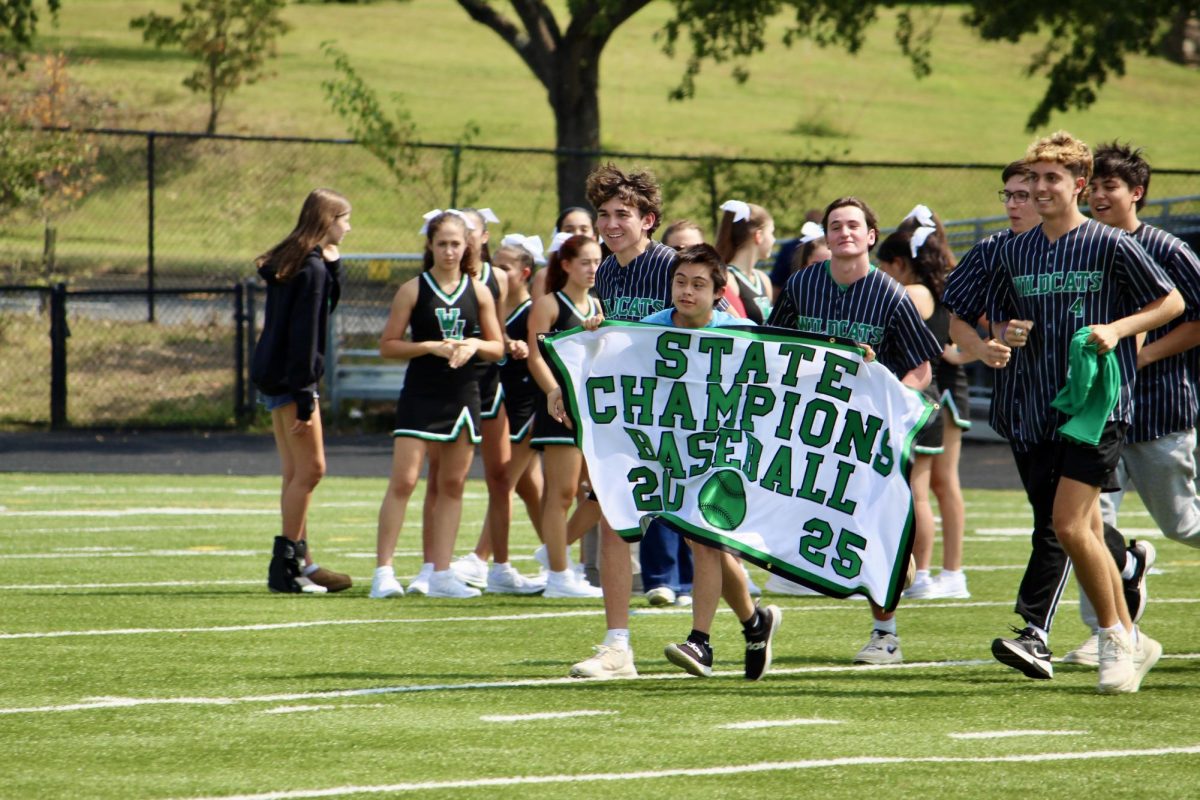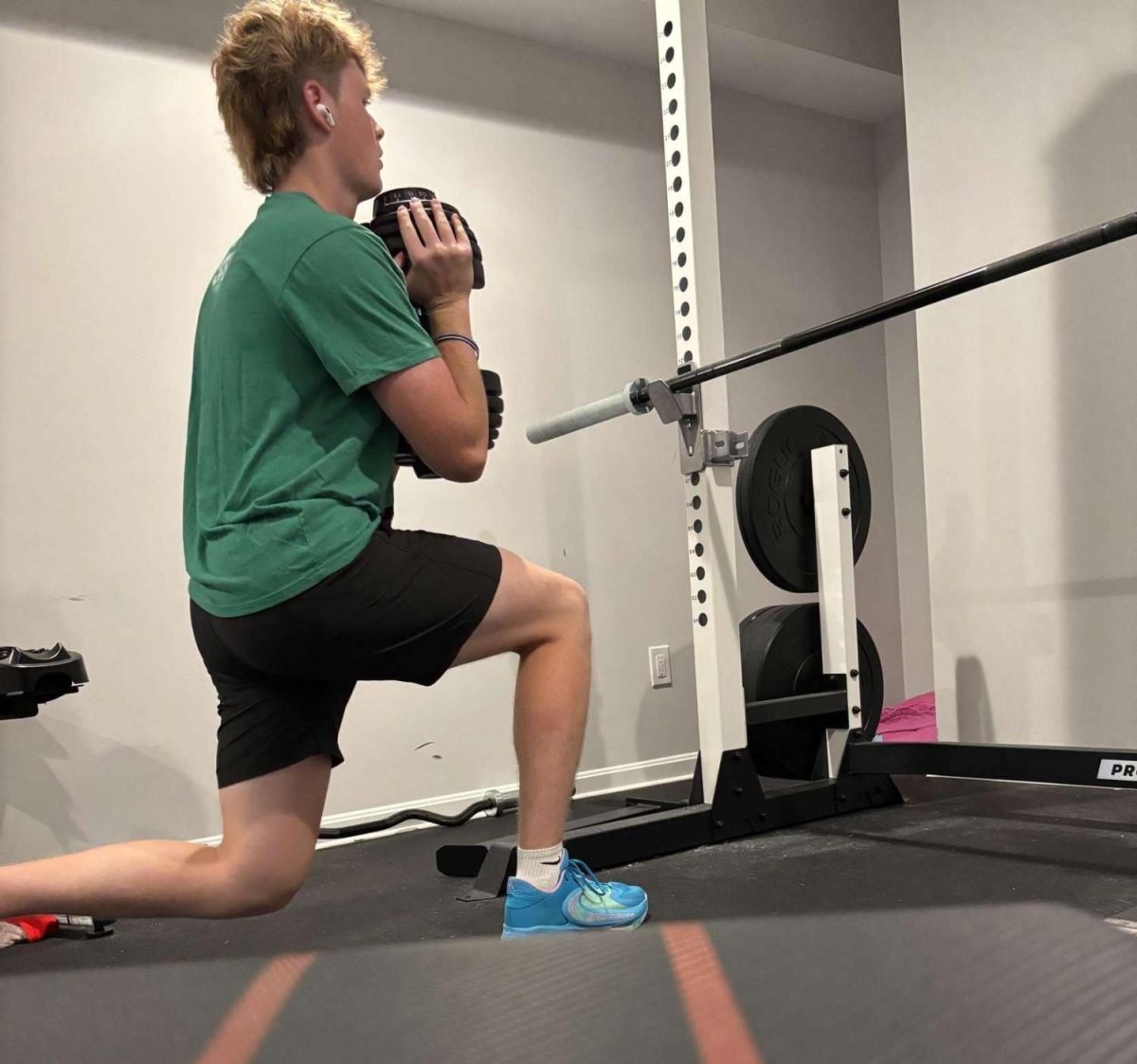Oscar Guerrero is one of the unsung heroes of the DMV soccer scene and El Salvadoran diaspora. He has taken small-underfunded teams to back-to-back state championships, put players into college and created a strong family-oriented, family-run program built on affordability; all in 15 years of coaching. At 40 years old, Guerrero is younger than many coaches at dominant, high-profile programs. He cuts an exacting figure on the sidelines of games: short, red-haired, arms folded, stone-faced, as he orchestrates his team on the pitch, issuing the occasional rebuke or instruction to his players.
Born in the eastern part of El Salvador, Guerrero immigrated to the US in 1996 when he was 15, following his father to Langley Park, Maryland. He played four years of high school soccer at Bladensburg High School. When he graduated he got a job in construction while still playing in the various amateur and semi-pro leagues in the area when he could. After several years of playing semi-pro, Guerrero noticed that his son Diego would wobble onto the pitch to play at halftime of his games and that the boy showed obvious signs of talent. Guerrero took him to Hyattsville Boys and Girls club to get a start in organized soccer, ultimately that proved to be a mistake. The coach was uninterested in actually training or developing players and was more interested in just letting the kids play. After that, Guerrero got a letter promoting the Metropolitan Football Club (MFC) through Diego’s school. Metropolitan Football Club is based out of Langley Park, MD and practices at Mary Harris Elementary School. MFC was and continues to be a hotbed of young talented Latino players due to its affordability and convenience to the large Latino population in the Langley Park area. Talented players from the area are overlooked by bigger clubs in Columbia, Baltimore or Bethesda because they can not afford to pay the fees associated with youth soccer in our area.
“I was amazed the first night I took him (to MFC). Those kids made Diego look like he never played soccer before, those kids were six and seven and they were skillful and they were really good,” remembers Guerrero.
Guerrero decided to keep Diego at MFC and eventually, MFC formed a team and Guerrero was approached to coach.
“I was like, but I never coached before. Even though I played and had many different coaches, it’s different to coach 7 and 8-year-olds and it’s way different than coaching you guys (u17-18) or adults it’s way different,” Guerrero said.
Despite the doubt, Guerrero decided to take up the challenge. The first season did not go well; Guerrero’s MFC team was losing games by 9 and 10 goals. In the second season results picked up, they won BBLl (Baltimore Beltway Soccer League). Guerrero continued coaching for another two years. Eventually, the MFC team merged with a team from ASA (Arundel Soccer Association) and Jose Benitez took over coaching. Of the 12 players from that first MFC/ASA team, seven of them are playing in college.
Guerrero’s next team was started for his middle son Anderson; the team started small but took off after a merger between a club called El Salvador and Guerreror’s Takoma Park Friends United team.
“That’s when Leo (Zelaya), Brian (Hernandez), (Brian) “Betio” (Velazquez), Kevin (Meijcanos), (Brian) “Xander” (Frenz) like six kids that came. We used to play in NCLS versus them and we were like rivals because they had those kids that I just mentioned, they were their best players you know like half of their team was good but the other half was not good. The same thing was happening with me half my team. So I propose the idea to Leo’s dad, ‘why not merge?” Guerrero recounts.
That decision would be vindicated when Takoma Park Friends United won the Maryland State Cup in 2016. The next season the age split occurred, soo the team had to split into an 02 team and a 03 team. The 02s would repeat as State Cup Champions in 2017. It is exceptionally rare to repeat as State Cup Champions. Only Baltimore Celtic, a huge club of 46 teams and over a thousand players, and Guerreros’ Friends United team have achieved that feat.
Money has always been tight for Guerrero’s teams. One of the key tenets of the club is affordability. “A lot of these strong programs are not built for people who cannot afford it. If you go to Bethesda. Their season, the little kids season is $2,000 and what do they offer a league which is 8 to 9 games and 2 tournaments. So for $2,000 plus the hotels, the traveling, and all that it will end up being more.”
At the beginning of the season, players are told the total cost with proposed tournaments included. Players’ families have the option to pay upfront or monthly and the fees get adjusted by whether players participate in particular tournaments or not. In order to make ends meet there are a few families who donate additional sums to cover for those families who can’t pay.
The 02 and or 03 teams are the most recent group to go through the crucible that is youth soccer. They have played in the Disney Showcase, Penn Fusion Showcase, and EDP (Elite Development Program) showcase; all of which draw hundreds of teams. They also play local tournaments like the Bethesda memorial day tournament or the Alexandria showcase. While also regularly beating some of the best teams in the area league-style competitions.
Tournaments and playing in the local soccer scene come with their own challenges, traveling to tournaments is time-consuming and staying at hotels is expensive. Players will drive the 5 to 6 hours to Pennsylvania, the 3 to 4 hours to New Jersey, 4 hours to Richmond, and for the trip down to Disney Showcase Guerrero rented a van to get some of the players down to Florida. If players do stay in a hotel, sharing rooms is very common. That is to say nothing of on-field challenges; most teams are often not particularly talented but rely on discipline and physicality to win games.
“One of the problems we have in the US. I’ll put it like this: you wanna become a pro player you gotta leave the US cause they’re gonna kill you. Because right here, No.1 they do not like talent, ok you can be so talented you have to be 6’5-6’6 at least, ok. They like athletic players even though if you are not a good player but you’re fast or strong they love you… you are a player for them… for the coaches over here. If you are small talented you are not gonna make it.” Guerrero observes.
This is almost certainly why the US does not produce internationally competitive players. Too many teams are allowed to rely on physical dynamos that have no actual talent, in our area Bethesda, Baltimore Armour, and Alexandria are prime examples of this, they are disciplined and have maybe 3 players who can actually play, the rest are technically solid and run. At tournaments, this approach is very prevalent; physical play is the order of the day and often goes unpunished by referees. This leads to a unique on-field challenge for Takoma Park, the prevalence of racist taunting from opposing players, and at the very least unconscious bias from referees, especially outside of Maryland. The problem is so bad that US soccer simply refuses to acknowledge its existence, there is no formal way to complain about onfield racism from an opposing team.
Despite the challenges, Guerrero remains committed to the families and teams that make up his teams. The work he has done, creating the Friends and bringing success to the program. Others, in the soccer community, have taken notice, although this is perhaps not the most genuine recognition. He has been approached to become part of the Bethesda Soccer Club several times.
“A few years ago Bethesda wanted us to be part of them. But I refused because we would be Bethesda and they would be charging Bethesda rates. I would have my check but in the same token, my people would be paying Bethesda their fees. In fact, not too long ago we were playing a tournament with the little kids and we saw Brad Russo. He told us “if you make your teams Bethesda, Bethesda west, or Latino Bethesda. You’re gonna attract more players, you’re gonna have more players in your tryouts, we can give clinics to your kids, we gonna help out some kids financially. He said some kids. But I do not want to do that because then we would fall into Bethesda’s hand.” Guerrero said.
It speaks to Guerrero’s selflessness that he knocked back an offer that would have eventually rescued the money he spent building the program and would have helped his team immensely. At the same time, he probably realized that this offer was more for access to youth talent pipelines around Langley Park and the potential money they could make there, than any sort of benefit or favor for his players. Still, there are not many people who would do that, particularly when everything Guerrero built came at a large expense to himself.
However, Guerrero’s selflessness is better illustrated by the story of where the team practices. Guerrero found the field while making a delivery to an old Bible College.
“I was making a delivery at Bible College and I would see the field. Tallgrass but it was a soccer field. So I met the guy in charge making a delivery Brian…Brian Smith and I asked him for the field “like who plays here” and he said “oh the college used to play here but you know we shut down the college so now nobody is using it” and I was like “can we rent the field? I mean I’ll take care of the field, I’ll cut and maintain the field. He said “oh yeah sure” but he didn’t know me well so he asked me for a lot of things. So I came to an agreement with Brian that I would maintain and rent the field. So when we first got there the field was pretty good, better than where we were, much better than where we were.”
Since then Guerrero has poured much time and effort into improving the field. He used the money from his roofing work to buy highway floodlights to light the field and allow practices to go later and used that same money to buy an industrial lawnmower to cut the grass at the field. Plus all the various training equipment at the field pennies, nets, balls, training tops, freekick walls. In addition to the grass field, there is also an indoor basketball gym that they use for Futsal in the winter. He has been able to create a hugely successful program and a facility for the program to practice in, while still keeping the costs low.
Guerrero’s most recent and largest branch of the program was originally based around his youngest son, Santi. Guerrero started coaching Santi three years ago. Practices began with just four kids but that has now grown into a program with four complete teams. The development of this program happened organically by word of mouth. Players would come and they would be maybe a 2011 and they would let them practice with them. Then eventually there were so many 2011 that they formed two 2011 teams, one in NCSL and one in EDP. However, he is not in charge of those teams. His son Diego is in charge of those teams along with a current player Hivan Kouonang. One issue that they ran into is that 2011 players would bring their siblings who might be 2014 or 2013. With that supply of players, Guerrero’s daughter, Krysia, made a team. It’s roughly 16-18 guys who are in the 2014-2013 range. Anderson is now coaching the 2010 team and Guerrero is coaching the 2012 team.
What Guerrero has managed to achieve with players and people who have been overlooked by greedy money-making entities that call themselves soccer clubs is impossible to describe. Takoma Park has battled nationally recognized programs and produced players who have won at internationally recognized tournaments like Dallas. With limited money and facilities, players who split their days between soccer and construction sites, all while keeping the price of playing low, open to people from all walks of life. Keep an eye out for Takoma Park, the players they produce are going to light up the DMV for years to come.
Categories:
Meet PG County’s State Cup Wizard
Photo courtesy of Alphonse MacDonald
Oscar Guerro watches his team from the sidelines of their final Jefferson Cup game. Guerro started coaching his first son Diego 15 years ago. This is his second team for his second son Anderson.
Story continues below advertisement
0
Tags:
Donate to The Pitch
$556
$1000
Contributed
Our Goal
Your donation will support the student journalists of Walter Johnson High School. Your contribution will allow us to purchase equipment and cover our annual website hosting costs.
More to Discover
About the Contributor
Alex MacDonald, Print Sports Editor
[caption id="attachment_49193" align="alignnone" width="382"] Alexander MacDonald is a Senior at WJ in his first year on the Pitch, he will be a Sports Editor this year. Alex played soccer at WJ for three years and is hoping for a fourth.[/caption]








